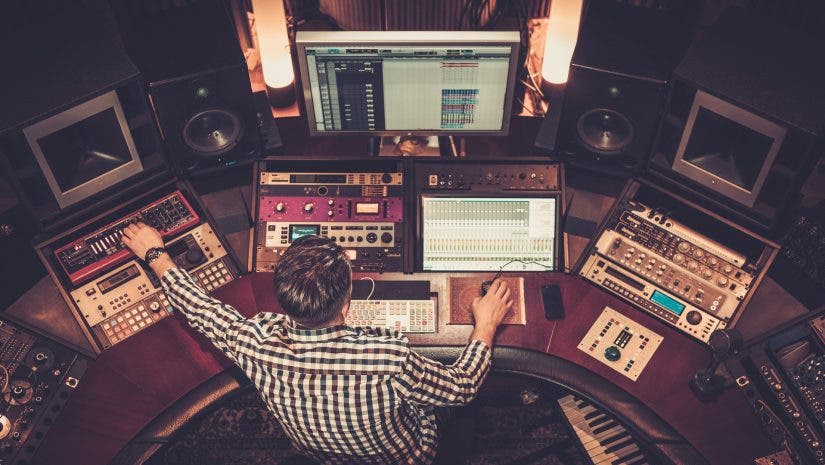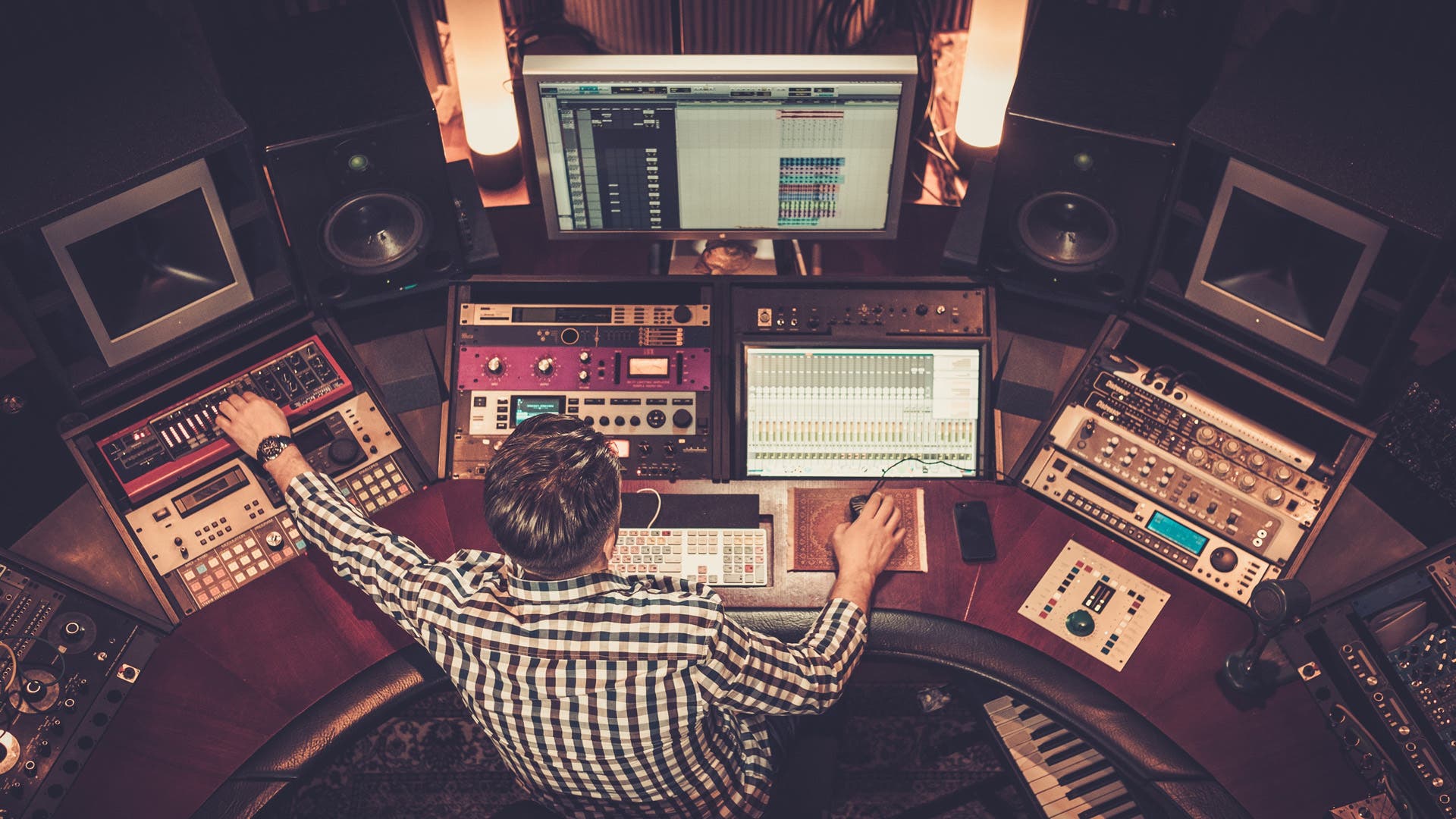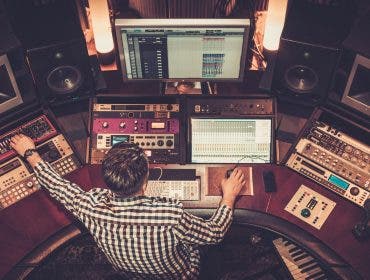
The computer is the heart and brain of any recording studio. When your computer starts to run slow it can ruin the recording process. Buying a new computer can be a huge expense. Here are seven tips to make your current recording studio computer run faster.
1. Store your sessions and samples on an external hard drive
Keeping all of your working sessions and all the audio files on an external hard drive will allow your computer to devote the internal storage to managing the software. With your computer focusing on software and your external focusing on file storage you will allow your computer to process audio much faster than if everything was stored on the native hard drive.
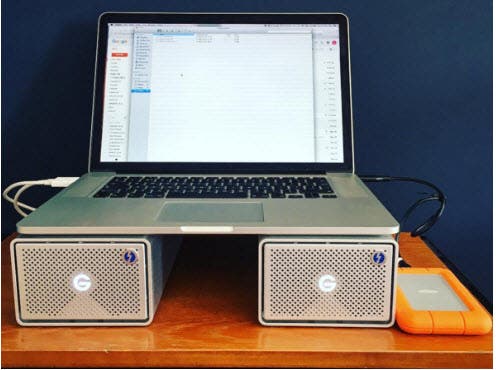 2. Get off the internet when you are working
2. Get off the internet when you are working
Even if you do not have an internet browser open, your computer will still run background tasks using the internet that will seep away your processing power. The computer is constantly looking for updates, checking to see that your Dropbox is up to date, and many other tasks. Turning off wifi and/ or unplugging the ethernet cable will eliminate this processing drain. Make sure your computer is completely disconnected from the internet in order to decrease background processing activity.

3. Close any non-essential programs when you are working
This may seem obvious, but I have gone into studios where people are complaining about slow computers only to see Chrome open with a hundred tabs. Don’t just close the windows; quit the programs completely.
4. Upgrade your RAM
Most computers, even Macs, can easily have their RAM upgraded by the consumer. For a few hundred dollars, you can max out the RAM in your computer and dramatically increase the functionality of your studio computer. It is expensive, but a lot cheaper than buying a whole new computer. Upgrading the RAM on my studio computer gave me another two years of use before it had to be replaced. When buying a new computer, check to see if the RAM can be upgraded. This is certainly something worth considering when making a new purchase
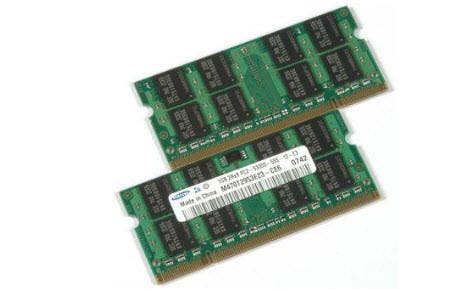
5. Use busses to decrease the instances of plug-ins you are using
Plug-ins sound great, trust me, I agree with that. They are also the biggest drain on your CPU. In order to decrease the amount of plug-ins you use, consider busing multiple tracks to a single instance of that plug-in instead of applying it to each individual track. This won’t work when you want to apply a specific EQ to each track, because all the tracks would be bussed to the plug-in with the same settings. However, this works great when you have a group of the same instrument or for global effects like reverb, side-chain, or delays.
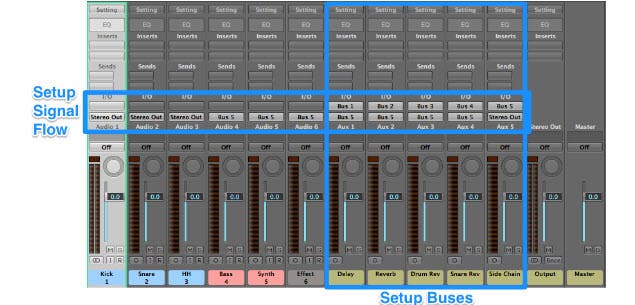
6. Adjust your buffer size to the task at hand
This doesn’t really make your computer run faster but it allows you to get more accomplished without hitting your CPU ceiling. Within your DAW, in your audio preferences there is a setting called audio buffer. The lower the buffer is the less latency you will experience during recording. A high buffer will decrease the load on the CPU allowing you to playback back very dense sessions. If your CPU is glitching out on playback then you can increase the buffer for a smoother experience. It is important to choose a buffer size that is included in this pattern: 64, 128, 256, 512, 1024, 2048, etc. The buffer can either be half or double of a previous value.
7. Bounce out stems
Lock down your settings on your most plug-in intensive tracks. Bounce those tracks out and then bring them back in as audio files on a blank track with no plug-ins. Make sure to delete the raw track with all the plug-ins. This can be frustrating for a work in progress, as you can no longer make changes to the settings you bounced. On the other side of the coin, it is good to force you to make decisions and commit. I sometimes do this for EQ and compression to eliminate CPU drain. I then leave the coloring effects like reverb and delay as something I can continue to play with as the session evolves.
